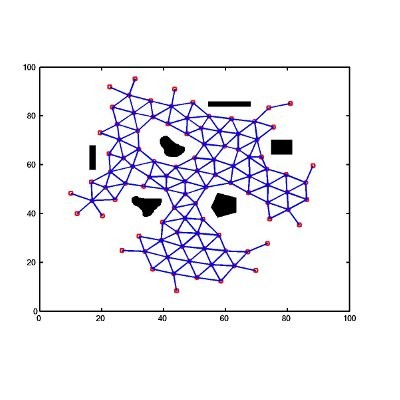Mobility-based Topology Control of Robot Networks

Description:
Robot networks are large-scale networks of simple robots that are each individually limited in capability but by collaborating with each other, yield an escalation in aggregate potential. Achieving this potential poses significant challenges; global tasks or properties must be achieved using local information and interactions while dealing with unreliable communication. We focus on the problem of deployment of networked robots with the aim of maximizing their sensing coverage while maintaining a constraint on the network topology. We show that if each robot has a communication neighbor in every theta sector around it, then the global network is guaranteed to have an edge-connectivity of at least 2pi/theta for theta < pi. Interestingly, this result does not assume a disk communication model and holds for realistic, irregular models. To optimize sensing coverage while maintaining these local constraints, we have developed a virtual potential fields based distributed controller and demonstrated its effectiveness for large robot networks in simulation.